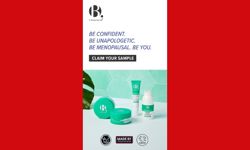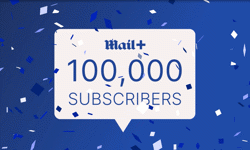“We are all online publishers now,” started Emap’s David Gilbertson, “my sister, your brother, his next door neighbour are all contributing to the online information environment.” And it is these bloggers, aggregators, low cost start ups, who are diluting our USP.
Publishers, traditionally, were the providers of hard-to-find-elsewhere content to hard-to-reach-elsewhere audiences. Now content is everywhere and audiences are fragmented and dissipated. To make matters worse, our advertising clients are now using these new channels to go direct to their customers, cutting out the middleman (namely, us) altogether.
It’s become a numbers game, with eye watering numbers of unique users being quoted. Can B2B ever compete in the volume game? NO! Our audiences are small, though beautifully proportioned. Ten thousand is a good size B2B segment, but little more than a rounding error for large consumer sites.
The only way open for publishers in general, and B2B in particular, to compete is through quality. Plain and simple. The task is to attract audience quality, through delivering unique content which has measurable RoI for the user. That way, decent returns can be achieved by charging for premium content and commanding differentiated advertising rates.
“There is no profit in an undifferentiated world.” A quality, distinctive audience of decision makers, consuming your unique and valuable business intelligence, within the context of your strong brand values is the way to go.
So far, fairly obvious you might think. But beware self delusion. How good is your content? Really.
Information vs Intelligence
What’s the most over-used phrase in the publisher’s lexicon? It’s got to be ‘must-have information’. We all produce it, don’t we? Err... probably not. If we’re being honest, we’ve probably all trotted out these words with little consideration to the actual value of the content we provide.
In fact, it is so commonly used, that we are in danger of beginning to believe our own hype. And that would be dangerous.
The fact is, says David, that much of the information we push as ‘must-have’ is actually merely ‘nice-to-have’; of interest but nothing more. The news of Joe Bloggs’ appointment as sales director of Lube Hydraulics is quite interesting, especially if you used to work with Joe, but hardly important. In practice, much B2B content is little more than reportage, and ... ‘quite interesting’ is simply not enough.
The distinction between ‘information’ and ‘intelligence’ is key to the long term prospects of publishers. According to David, “information is something interesting you don’t know what to do with”, whereas “intelligence prompts and enables a decision; it puts information into context where you are urged to act.”
Still not sure of the difference? Well, where does your audience consume your content? If it’s at their desks, then it’s pretty intrinsic to what they’re doing (ie intelligence). If it’s in Starbucks or on the train, then it’s non-core and, at most, nice-to-know (ie information).
There is “a world of difference between information and applicable intelligence.”
The key challenge to B2B publishers is, “can you deliver transaction oriented, decision ready analytical information, which derives from structured content, that actually helps people do their jobs more effectively?”
To do this, publishers need to get into the detail and to fully understand their customers’ processes, how they operate, how they service their clients, how they win new clients, how they perform, how their competitors perform. We need to know them intimately, and only then can we “provide value services which they will be able to show an RoI.”
Taking this message onboard
‘Born-digital’ businesses tend to understand that better than ‘born-print’ ones. They seem to move instinctively to the heart of what are the real business requirements and how they should be serviced. “Delivering actionable meaning in context is the recipe for financial success and chargeability”; ‘born-print’ businesses find it harder to adapt to that, but adapt they must. Because “the winners in B2B are those businesses which can build sustainable advantage through distinctive content, by knowing and meeting customers’ needs in detail, who can feed and inform their process, not just contribute information to them, and who can meet the two big drivers of greed and fear and charge for that content. And the reason they will be able to charge for it is because their buyers will be able to show RoI.”
And finally...
David left us with an apt quote for these recessionary times, from Horace: “Adversity has the effect of eliciting talents which in prosperous circumstances would have lain dormant.” May that be all our legacy.










